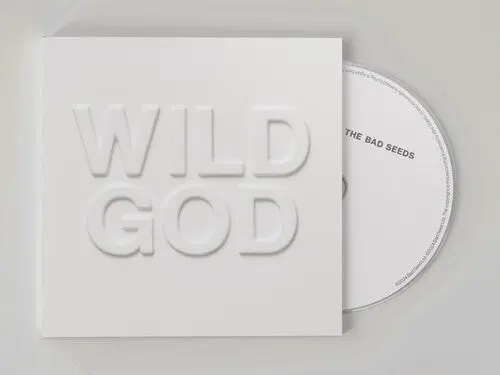Nick Cave & the Bad Seeds: Wild God Review
An Ode to Resilience and the Joys of Life Amidst the Shadows
Welcome to Vintage Cafe, a reader-supported newsletter where curiosity meets passion. Here, I explore music, films, books, travel, coffee, and art, sharing stories with a community that values depth and creativity. By becoming a paid subscriber for $5, you support this creative endeavor and gain access to exclusive content, early updates, and a closer connection to Vintage Cafe. Your contribution helps keep this space thriving, ensuring these passions continue to be shared with you and others who appreciate them.
Artist: Nick Cave and the Bad Seeds
Album: Wild God
Label: PIAS
Purchase link: Amazon
In the expansive career of Nick Cave, few albums have embodied such a dramatic shift in tone as Wild God. The 18th studio album by Nick Cave & the Bad Seeds finds the band at an intersection of profound grief and transcendent joy, offering listeners a work that is both musically adventurous and emotionally rich. Unlike its predecessors, which were steeped in the darker themes of loss and existential dread, Wild God dares to celebrate life, even as it acknowledges the persistent shadows that accompany it.
At the heart of Wild God is a journey—a pilgrimage, if you will—through the landscapes of sorrow, love, and, ultimately, euphoria. The album doesn't shy away from pain; it confronts it head-on, but rather than being consumed by it, the music transforms this pain into something euphoric and uplifting. The listener is invited to embark on this journey alongside Cave, who acts as both guide and fellow traveler.
Nick Cave’s recent work has been heavily influenced by personal tragedy, particularly the loss of his sons, Arthur in 2015 and Jethro in 2022. These events cast long shadows over albums like Skeleton Tree and Ghosteen, where grief was a central theme. However, Wild God marks a departure from the unrelenting sorrow of those records. Instead, it reflects a more nuanced perspective, one where grief coexists with a renewed appreciation for the beauty of life.
This shift in tone is perhaps most evident in the track “Joy.” Here, Cave sings of waking in the night, haunted by a voice that seems to belong to a ghost—likely a reference to his late son Arthur. But instead of lingering in melancholy, the song transitions into a celebration of life’s joys, with a chorus of warm voices and ascending melodies that suggest a kind of spiritual ascension. The message is clear: despite the overwhelming sorrow, there is still room for joy.
Keep reading with a 7-day free trial
Subscribe to Vintage Cafe to keep reading this post and get 7 days of free access to the full post archives.





